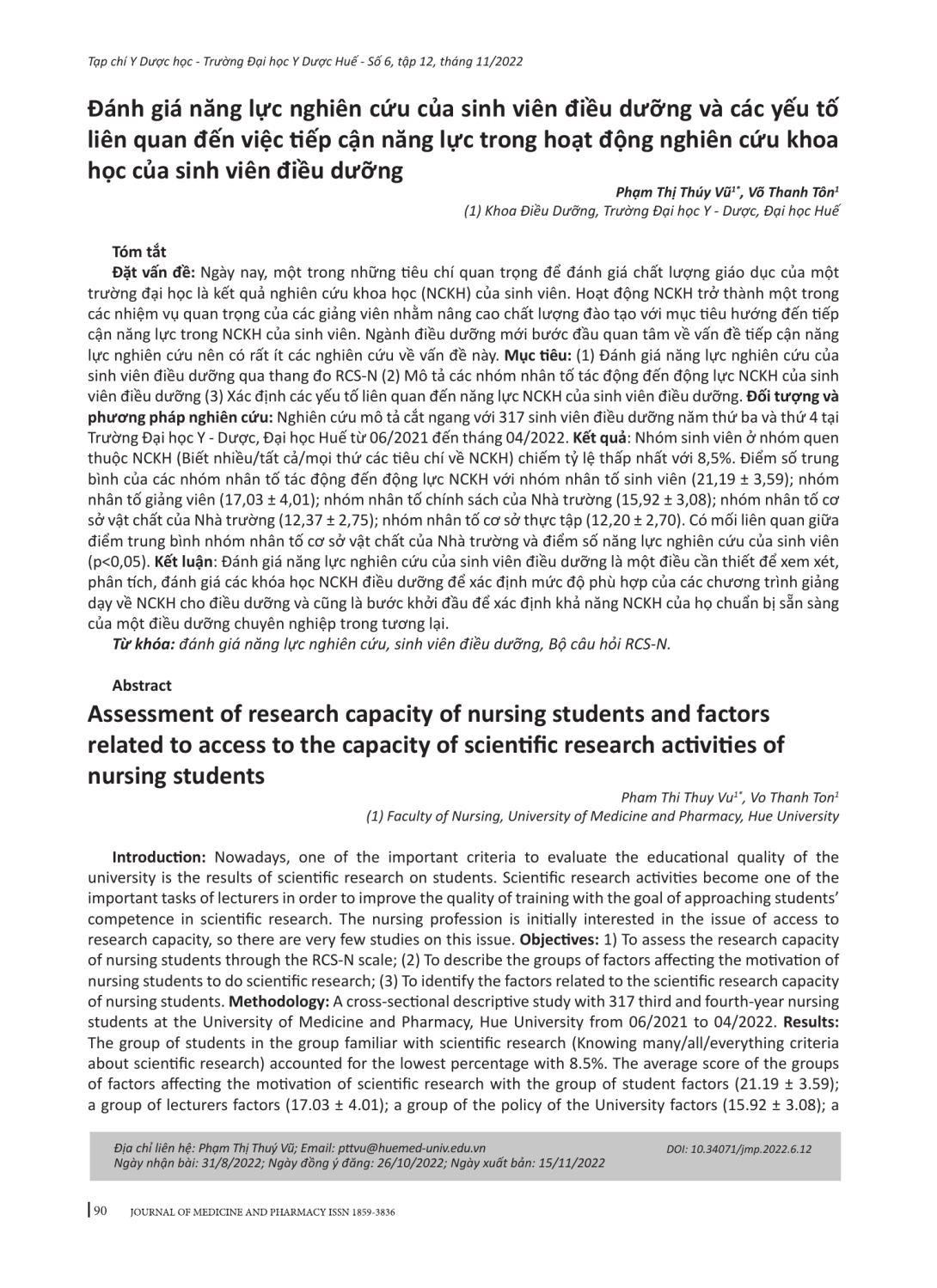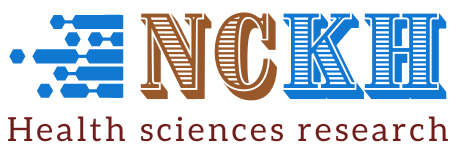
Đánh giá năng lực nghiên cứu của sinh viên điều dưỡng qua thang đo RCS-N. Mô tả các nhóm nhân tố tác động đến động lực NCKH của sinh viên điều dưỡng (3) Xác định các yếu tố liên quan đến năng lực NCKH của sinh viên điều dưỡng. Đối tượng và phương pháp nghiên cứu: Nghiên cứu mô tả cắt ngang với 317 sinh viên điều dưỡng năm thứ ba và thứ 4 tại Trường Đại học Y - Dược, Đại học Huế từ 06/2021 đến tháng 04/2022. Kết quả: Nhóm sinh viên ở nhóm quen thuộc NCKH (Biết nhiều/tất cả/mọi thứ các tiêu chí về NCKH) chiếm tỷ lệ thấp nhất với 8,5%. Điểm số trung bình của các nhóm nhân tố tác động đến động lực NCKH với nhóm nhân tố sinh viên (21,19 ± 3,59); nhóm nhân tố giảng viên (17,03 ± 4,01); nhóm nhân tố chính sách của Nhà trường (15,92 ± 3,08); nhóm nhân tố cơ sở vật chất của Nhà trường (12,37 ± 2,75); nhóm nhân tố cơ sở thực tập (12,20 ± 2,70). Có mối liên quan giữa điểm trung bình nhóm nhân tố cơ sở vật chất của Nhà trường và điểm số năng lực nghiên cứu của sinh viên (p<0,05). Kết luận: Đánh giá năng lực nghiên cứu của sinh viên điều dưỡng là một điều cần thiết để xem xét, phân tích, đánh giá các khóa học NCKH điều dưỡng để xác định mức độ phù hợp của các chương trình giảng dạy về NCKH cho điều dưỡng và cũng là bước khởi đầu để xác định khả năng NCKH của họ chuẩn bị sẵn sàng của một điều dưỡng chuyên nghiệp trong tương lại.
Nowadays, one of the important criteria to evaluate the educational quality of the university is the results of scientific research on students. Scientific research activities become one of the important tasks of lecturers in order to improve the quality of training with the goal of approaching students’ competence in scientific research. The nursing profession is initially interested in the issue of access to research capacity, so there are very few studies on this issue. Objectives: 1) To assess the research capacity of nursing students through the RCS-N scale; (2) To describe the groups of factors affecting the motivation of nursing students to do scientific research; (3) To identify the factors related to the scientific research capacity of nursing students. Methodology: A cross-sectional descriptive study with 317 third and fourth-year nursing students at the University of Medicine and Pharmacy, Hue University from 06/2021 to 04/2022. Results: The group of students in the group familiar with scientific research (Knowing many/all/everything criteria about scientific research) accounted for the lowest percentage with 8.5%. The average score of the groups of factors affecting the motivation of scientific research with the group of student factors (21.19 ± 3.59); a group of lecturers factors (17.03 ± 4.01); a group of the policy of the University factors (15.92 ± 3.08); a group of facilities of the University factors (12.37 ± 2.75); a group of practice station factors (12.20 ± 2.70). There is a relationship between the mean score of the group of facilities of the University factors and the student’s research capacity score (p<0.05). Conclusion: Assessing the research capacity of nursing students is a necessity to review, analyze and evaluate nursing science research courses in order to determine the appropriate level of scientific research curriculum for nursing students. nurses and is also the first step to determining their ability to do scientific research to prepare them for future professional nurses.
- Đăng nhập để gửi ý kiến
